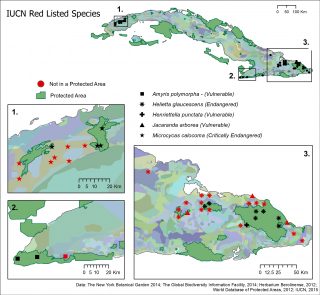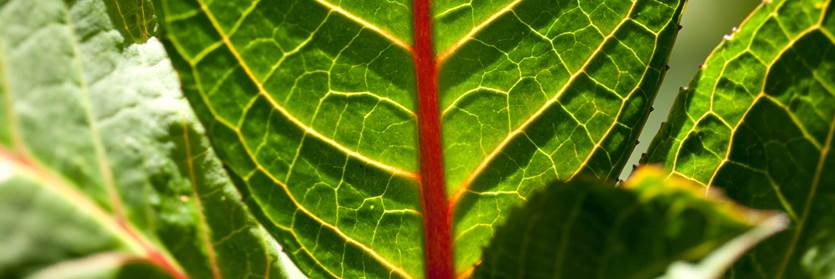Balancing Conservation and Commerce: NYBG and JetBlue Launch the Caribbean Consortium
Posted in Environment on April 13, 2018 by Stevenson Swanson
Stevenson Swanson is the Science Media Manager at The New York Botanical Garden.

Representatives of The New York Botanical Garden and JetBlue Airways launched their new Caribbean Consortium at a recent meeting at the Botanical Garden’s Pfizer Plant Research Laboratory. The consortium, which was announced in February, will address the linked issues of conservation and commerce across the Caribbean, a vital part of JetBlue’s network and a longtime focus of the Garden’s Plant Research and Conservation program.
With the goal of striking a balance between conservation and commerce, the consortium will bring together a cross-section of key stakeholders from business, academia, and non-governmental organizations, such as the Center for International Policy, a Washington, D.C., foreign policy research and advocacy group, whose Cuban program director, Elizabeth Newhouse, participated in the meeting. Also joining was Robert Muse, a Washington attorney who has worked on Cuban issues since the early 1990s.
“This partnership with JetBlue is going to help translate conservation research into conservation action,” said Brian Boom, Ph.D., the Garden’s Vice President for Conservation Strategy, who has traveled to Cuba regularly since 1988 to conduct research and build relationships with his Cuban counterparts.
For JetBlue, the partnership with the Garden is an extension of the airline’s conservation efforts in the Caribbean, outlined in EcoEarnings: A Shore Thing.
“JetBlue wants to protect the region’s natural beauty, which in turn protects progress and our business,” said Sophia Mendelsohn, JetBlue’s head of sustainability.
Meeting participants noted that as travel to Cuba increases, the demand for hotels, recreational facilities, and other destination amenities has resulted in a number of proposals for new developments, such as several golf courses along Cuba’s coastline, that have the potential to affect native plant species and their habitats. Through the work of the Garden’s Geographic Information System (GIS) laboratory, Garden researchers have identified currently unprotected areas where plants classified as vulnerable or endangered have been found.
As a first step in Cuba, the consortium will address the issue of sustainable travel by identifying proposed development projects, such as golf courses, hotels, and airports, and make recommendations that could inform planning efforts so that projects do not affect Cuba’s biodiversity.
Also, thanks to the Garden’s long-standing relationship with Cuba’s national network of 13 botanical gardens—which was formalized last year with the signing of a memorandum of understanding—the Garden will evaluate ways it can collaborate with the Cuban gardens to develop materials to promote sustainable travel.
Turning to the Caribbean as a whole, the Garden is in the midst of assessing the conservation status of the region’s plant species and has existing relationships with many research and conservation groups across the Caribbean. As Puerto Rico, the U. S. Virgin Islands, and other islands work to recover from last year’s devastating hurricanes, the Garden’s research and relationships on the affected islands could help inform JetBlue’s marketing efforts to revive tourist travel as a way to support the islands’ recovery efforts.
With no shortage of ideas and possibilities, the Consortium is now planning its short-term goals for the next three to six months and long-term goals for the following six to 12 months.

